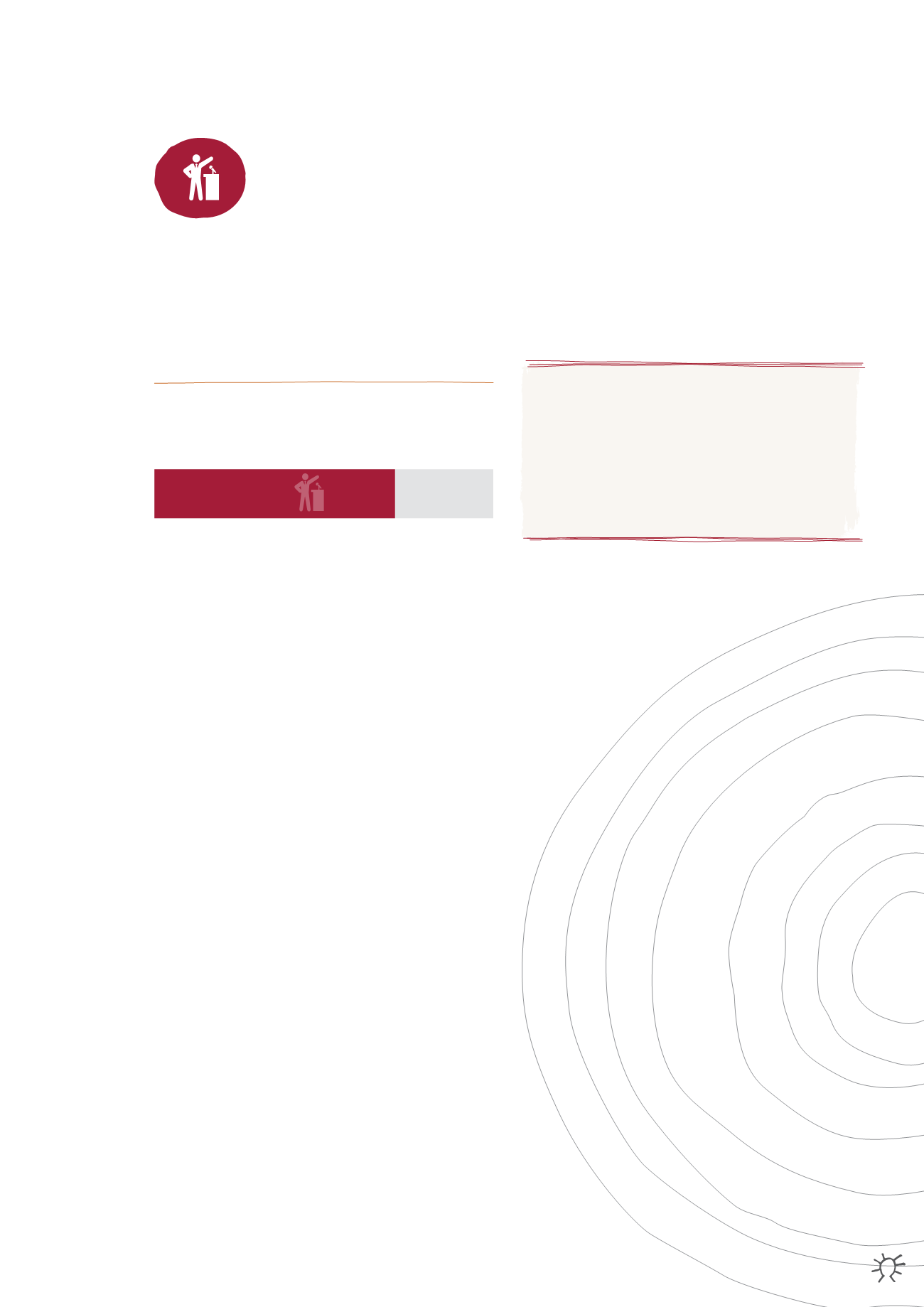

By investing in and building capacity in all its forms,
as described in this section, Jawun amplifies the
impact of its partner organisations to achieve their
purpose. The end results—positive outcomes for
individuals, families and communities—belong to the
Indigenous organisations themselves. Sections 3 to
5 of this report take a closer look at the enterprises,
reform initiatives and success stories being driven by
Indigenous leaders and communities.
‘Through its corporate, government and
philanthropic partners, Jawun helps local
Aboriginal organisations and leaders drive
their agenda for real change. We’ve seen
this put the wind in the sails for a much
stronger future in the East Kimberley.’
—IAN TRUST,
EXECUTIVE DIRECTOR, WUNAN
Style
Judgement, relationships, strategic thinking
combined with vision, passion and ability to
innovate—‘style’ allows an organisation to
deliver on its goals and then go beyond or
evolve them.
When KPMG looked at Jawun’s role in
strengthening organisational capacity, they found
that as a result of the partnership with Jawun:
organisations reported an uplift in style
71%
>
SOURCE: KPMG (2015),
IMPACT EVALUATION OF JAWUN
, EXECUTIVE
SUMMARY, P. 3.
Cape York Institute
The Cape York Institute was conceived in 2001 as an
entity to develop and promote the transformative
Cape York Agenda (see Section 4.1). When Cape
York leaders contacted Jawun (then Indigenous
Enterprise Partnerships) for support in getting the
agenda off the ground, the organisation deployed a
Boston Consulting Group (BCG) secondee to Cairns
for a year. He worked closely with Noel Pearson,
academics and representatives of the Queensland
Government, acting as a strategic sounding board to
translate the vision of Indigenous leaders into action.
The result—a fully costed business case for the new
Cape York Institute—was the basis of the initial
government funding that set up the institute in 2004.
Jawun and BCG support did not stop there: a stream
of secondees supported the establishment and early
years of Cape York Institute, continually providing the
leadership with input from a business perspective,
to ensure robust future success. In a truly enabling
role that set a precedent for the Jawun model, these
highly skilled secondees built not only the capacity
of Cape York Institute leaders and management,
but also the courage and confidence they needed
to embark on an innovative, game-changing reform
agenda. Noel Pearson said, ‘BCG helped us clarify
what we should focus on—the concept of being in
the sweet spot between a research organisation
and policy and implementation—they really laid the
platform for that.’
2. STRENGTHENING INDIGENOUS ORGANISATIONS 33


















